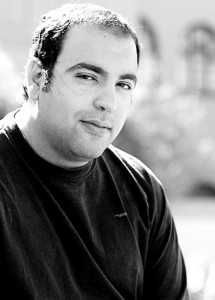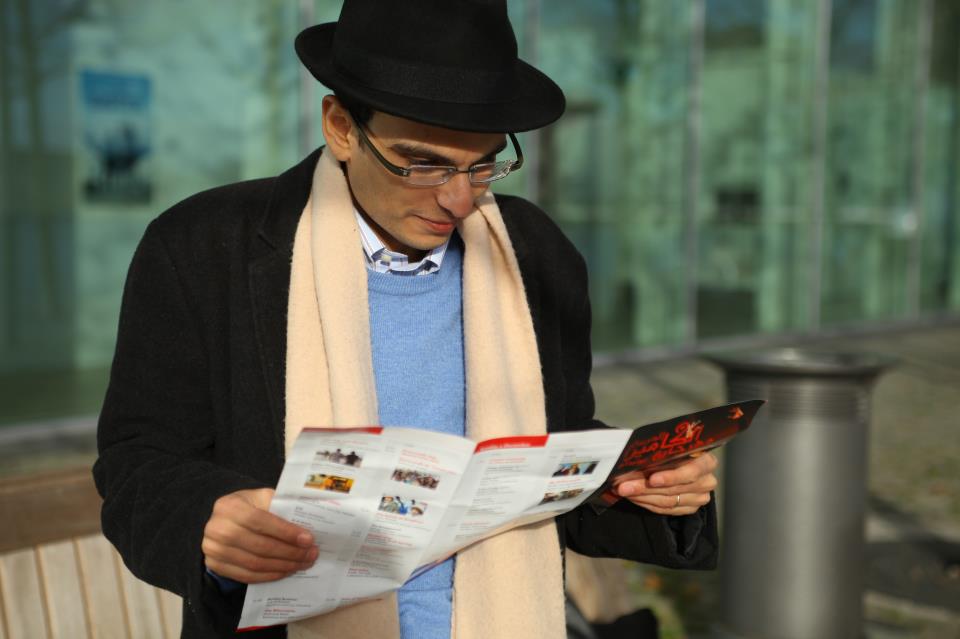
Eid is upon us, which means that Eid movies are upon us, if you already couldn’t tell by their repetitive ads all over TV, all the time. Our Eid movies offerings this year are as follows: Abdo Mota, a movie about a thug, which will naturally have at least six knife fights and two sha3by songs by Occa and Ortega; Miss Mama, a Yasmine Abdel Aaziz attempt at family comedy, where she will stick to her usual slapstick fanfare and make funny faces at the camera; and the current heavy at the box office, An Hour and a Half, which stars almost every actor in Egypt, with a reportedly unintentionally hilarious turn for Yosra El-Lozy playing a housewife from Upper Egypt, about the intermingling drama (we know it’s drama because there is a lot of shouting and fighting and dramatic music, and that’s how we do drama) of those million characters, all while being on a train. So, as always, we are stuck with the two main categories of Egyptian filmmaking of late: lowbrow slapstick comedy and hyper-dramatised movies about the everyday reality of poor Egyptians. As a friend recently told me during a conversation, if you watched the supreme majority of Egyptian movies over the past 10 years and thought about what they say about Egypt, (in terms of production, story, acting, et cetera), you will find them truly terrifying.
With notable exceptions, the majority of Egyptian movies seem to be made with consistent mediocrity, while pretending to be artistic because they seemingly reflect “Egyptian reality”; something I like to call the “Khaled Yusef” disease which has seemingly infected every aspect of our art scene. Every artist I know these days creates art that represents society and its problems, while I for one miss the days when art used to inspire it. I miss the days when artists appeared to be crazy in their efforts to create the inspirational works of art that kept us all sane, in appreciation and in awe. It used to show us the things that we wanted to see around us, but reality never allowed to exist. Sure, this country has a lot of suffering and misery that we shouldn’t ignore, but their prevalence has made cultivating beauty and inspiration all the more imperative. Instead, all we have are constant reminders, in every medium, of the world we live in, of the injustices we all go through, of “the what is” instead of the “what could be.” Lazy. Just lazy art. And none more guilty of that offence than so called “revolutionary” artists.
Yes, let’s make documentaries about the revolution. Let’s make movies about the revolution. Let’s make TV shows, exhibits, art showings, theatre plays, songs and graffiti, all about the revolution. Let’s pretend that revolutionary art isn’t supposed to be about art that revolutionises the art space that the artist occupies, or that challenges society and its norms, or even challenges the institutions that always try to control or censor art, but rather about creating art about the revolution. Let’s milk this cow dry, let’s utilise that never-closing Pandora ’s Box of injustice that constitutes our social ugliness and simply reflect it, over and over and over again, and not try to change it one bit. Yes, let’s do that. God knows the whole world is doing it, why shouldn’t we be equally bankrupt?
Speaking about revolutionary art, the next time I meet a “revolutionary” director who complains about the censorship board messing or stalling his movie, I will give them a swift kick in the butt. Why do you submit your film to them? We are living in a state of lawlessness, as you all keep reminding us, then why bother with complying with something as archaic and fascist as the censorship board, especially under a Muslim Brotherhood president? Why hasn’t this institution’s authority been challenged already? Who are they? What are their qualifications to decide what is suitable and what isn’t for us to watch? What is their educational background? Why hasn’t anyone truly faced-off with them, or better, ignored them and challenged their authority? And why even bother with them, with the box office never being the way that any of your artistic movies makes its money, but rather by selling the viewership rights to movie channels that don’t require the censorship board’s approval to begin with? And if you need the box office to sustain the industry, then why hasn’t the industry (actors, filmmakers, production houses, cinema conglomerates) fought back so far, even by simply not complying with the law? Now that would be both revolutionary and inspiring, because it would send the signal that it’s time to play out of the sandbox we confined ourselves in for decades, and maybe, just maybe, try something new, because apparently having a revolution didn’t cut it. Artists of Egypt, show me something new. Please. I beg you.
Mahmoud Salem is a political activist, writer, and social media consultant. www.sandmonkey.org



